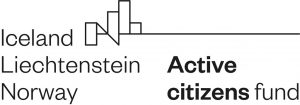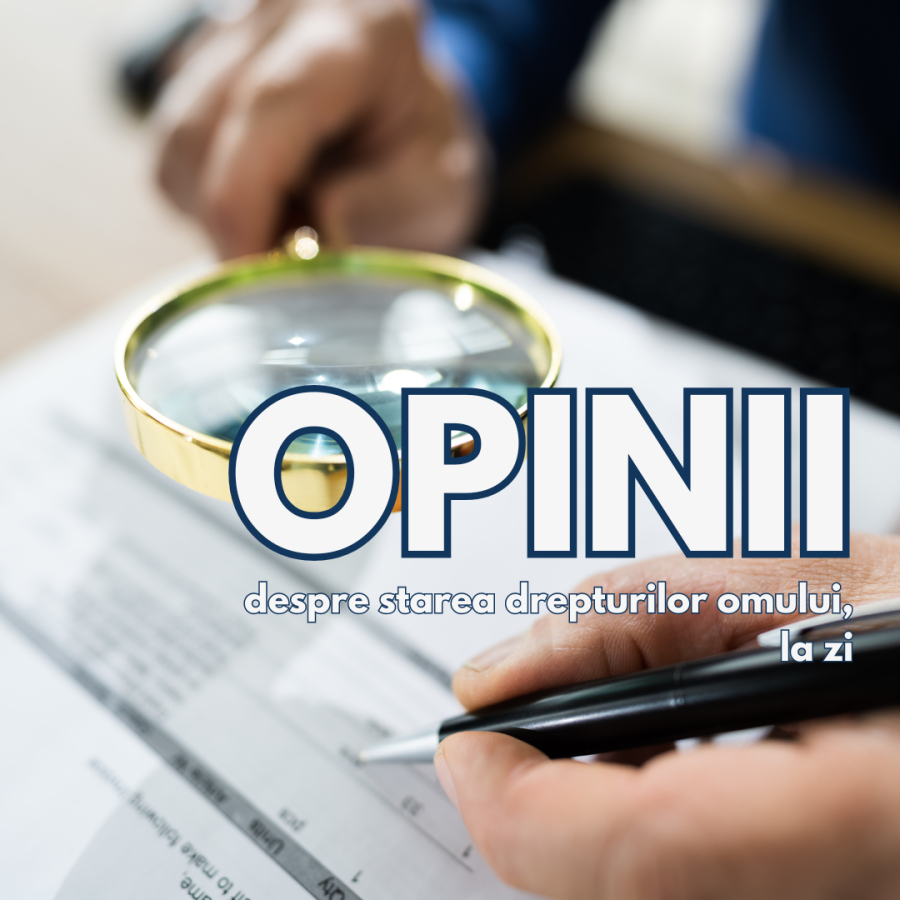Following the entry into force of Law No. 140/2022 regarding certain protection measures for persons with intellectual and psychosocial disabilities and the amendment and supplement of some normative acts[1], there was a glimmer of hope, a chance to lead a dignified life, where rights are respected, for the tens of thousands of people who were placed under guardianship under the previous legislation[2].
However, more than a year and a half later, the situation hasn’t changed much.
Most individuals with intellectual and/or psychosocial disabilities placed under guardianship have not only failed to genuinely benefit from the new legislative provisions in civil matters, but they and their guardians find themselves in an almost inescapable situation.
- The case file concerning the protection measure is (re)opened/placed back on the docket.
- A reexamination is ordered.
- The prosecutor prepares the order regarding the creation and submission of evaluation reports.
…
And here we stop.
In accordance with the provisions of Art. 8 point 28 of Law No. 140 (which amends Art. 938 of the Civil Procedure Code) “paragraph 3 – The prosecutor will conduct the necessary investigations, will order the performance of a medical evaluation and a psychological one, setting the term in which these must be completed. If the person for whom the protection measure was requested is hospitalized in a medical institution, a report by this institution will also be ordered. During the medical evaluation and, where appropriate, the drafting of the report, the opinion of the person’s treating doctor whose protection is sought may also be requested. Furthermore, the prosecutor will order the preparation of a social inquiry report by the guardianship authority. Paragraph 4 – The medical and psychological evaluation shall be performed after expressing, in front of the person conducting the evaluation, the consent of the person whose protection is sought, if their health condition allows it.“
For the reexamination, individuals who were previously placed under guardianship need to be evaluated by two types of specialists: psychiatrists and psychologists, specific test batteries must be applied, to establish the examined person’s capacity, and subsequently, two reports, medical and psychological, must be compiled and submitted to the court file.
Based on the evaluations and recommendations made by specialists in the two aforementioned fields, the court can decide which acts a person can perform and assume responsibility for.
In this context, a distinction is made between acts of preservation (e.g., registering a mortgage, summons), acts of administration (e.g., renting a property, loan contract), and acts of disposition (e.g., high-value purchase-sale contracts), what kind of contracts a person can enter into, for example, whether they can sign an employment contract for the purpose of engaging in paid activities or if they can marry.
In accordance with the provisions of the same Art. 8 point 28 of Law No. 140, para. 6, “The medical evaluation report and the psychological evaluation report of the person whose protection is sought shall include, as appropriate, references to the nature and degree of severity of the mental disorder and its foreseeable evolution, to the extent of their needs and to the other circumstances in which they find themselves, as well as mentions regarding the necessity and appropriateness of establishing a protection measure.” corroborated with those of Art. 7 of Law No. 140/2022 (which amends Art. 41 of the Civil Code) “[…] a person with limited exercise capacity can independently carry out acts of preservation, acts of administration that do not prejudice them, acts of acceptance of an inheritance or acceptance of liberalities without encumbrances, as well as acts of disposition of small value, of a routine nature and which are executed at the time of their conclusion.”, the conclusions reached by both the psychiatrist and the examining psychologist, contained in the evaluation reports, form the basis of the court’s decision. Thus, depending on these conclusions, under the provisions of Art. 7 point 22 of Law No. 140/2022 (which amends Art. 41 of the Civil Code), the judge will decide whether the reexamined person should have a protection measure instituted, which is applied gradually: judicial counseling or special guardianship:
“para. 1 – An adult who cannot take care of their interests due to a deterioration of mental faculties, temporary or permanent, partial or total, established following medical and psychosocial evaluation, and who needs support in forming or expressing their will, may benefit from judicial counseling or special guardianship, if taking this measure is necessary for the exercise of their civil capacity, on equal terms with other persons.
para. 2 – A person may benefit from judicial counseling if the deterioration of their mental faculties is partial and they need to be continuously advised in exercising their rights and freedoms. […]
para. 4 – A person may benefit from special guardianship if the deterioration of their mental faculties is total and, where applicable, permanent and they need to be continuously represented in exercising their rights and freedoms.”, or (exceptionally) if the restriction of exercise capacity is no longer required.
In theory, these procedures should be applied smoothly, and cases should not linger too long in the courts. Only in theory. In practice, we have been contacted (too) many times by various groups of people: individuals with intellectual and/or psychosocial disabilities, guardians, family members, or social workers who have asked us who bears the costs of medical or psychological evaluation services.
At the time of the law’s enactment, no one considered the issue of reimbursing these services, who would bear the costs, or the need to open a budget line to cover them. No one questioned who or with what resources these examinations, crucially necessary for the reexamination procedure, would be paid for. Everyone interested in the field eagerly awaited the enforcement of the methodological norms[3] to see how individuals who had previously been placed under guardianship or now required a protective measure would be reexamined, and at the same time, whether anyone from the relevant ministries would address the need for reimbursing these services or who the specialists capable of performing them would be. Surprisingly or not, in November 2022, upon the publication of the methodological norms, it was observed that the identified problem had not been resolved. In this context, several steps were taken[4], hoping that the competent entities would take action. And indeed, they did.
In August 2023, the methodological norms were amended to introduce two new articles in the annexes to the methodological norms with the following content:
“art 6 – Medical service providers in contractual relationship with the health insurance houses do not charge for the medical documents necessary for the medical evaluation and reevaluation in the context of ordering, extending, replacing, or lifting the protective measure issued according to the area of competence, following the provided services.” and
“art. 8 – Medical service providers in contractual relationship with the health insurance houses do not charge for the medical documents necessary for the psychological evaluation and reevaluation in the context of ordering, extending, replacing, or lifting the protective measure issued according to the area of competence, following the provided services.”
Specifically, this “new” regulation would refer to the notion of “document” that is, the “piece of paper” – the medical certificate or report itself, not the medical services, which, however, must be paid for, being worth several thousand lei. These remain the responsibility of the guardian or the person with disabilities. How should it be, right? They can “afford” it from their satisfying allowance. [5]
Who is in a position to explain, especially to those whom this law addresses, persons with intellectual and/or psychosocial disabilities, institutionalized or not, guardians who may have more than 10 people under guardianship under their care, how to bear these costs? Who reimburses them? What happens if they can’t gather the money by the “deadline”[6]?
For now, these are questions without answers, and in the meantime, we’re reimbursing “documents” because we’ve amended the methodological norms and solved the problem.
[1] www.crj.ro/wp-content/uploads/2022/11/legea-140-2022-forma-sintetica-pentru-data-2022-11-10.pdf
[2] In July 2020, the judges of the Constitutional Court established that placing under a judicial ban is no longer constitutional, and art. 164 paragraph 1 of the Civil Code was repealed. www.crj.ro/ccr-a-decis-punera-sub-interdictie-este-neconstitutionala/
[3] www.crj.ro/wp-content/uploads/2023/02/Monitorul-Official-Partea-I-nr.-1128-Ordin.pdf
[4] www.crj.ro/registrul-expertilor-psihologi-cerem-modificarea-art-2-privind-evaluarea-psihologica/
[5] By way of example, on the website of the National Agency for Payments and Social Inspection there are reports on the monthly allowance granted to the person with a severe or severe disability. The average amount paid to a severely disabled person as an allowance in January 2024 is 419 lei. Source: www.mmanpis.ro/wp-content/uploads/2024/02/HAND_IHG_Ianuarie_2024.pdf
[6] Respectively until the date granted by the prosecutor or the court in order to prepare the evaluation reports and submit them to the court file.



